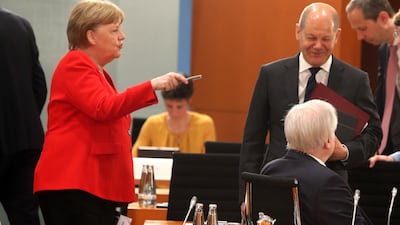Germany could have eight times as many coronavirus cases as officially recorded, an expert who has been a key adviser to the German government has warned.
Christian Drosten, director of the Institute of Virology at the Charite Hospital in Berlin, said as many as 45 per cent of people who contracted Covid-19 may have not had any symptoms.
With about 165,000 cases and 7,000 deaths, Germany has managed to deal with the virus much better than other major European countries such as France, the UK, Italy and Spain.
Germany has begun plotting its way out of lockdown measures imposed in March to curb the spread of Covid-19. Shops are set to reopen under strict social distancing measures and high-level football matches expected to resume later in the month.
“My own estimate, which I have been calculating for a long time, is that we have probably reported a quarter to one eighth of the actual infections in the statistics,” Prof Drosten told the broadcaster NDR.
He also cautioned politicians against putting scientists under undue pressure saying this risked the possibility that incorrect information would be given to the general public.
However, he accepted that part of the “great difficulty” and responsibility of politicians in this crisis was trying to balance competing issues such as health and the economy.
“Many politicians who have a close connection to science, who speak directly to scientists, can sometimes put a lot of pressure on them and say: ‘I don't want this responsibility on my shoulders, I would rather see the responsibility in a scientific manuscript from which I can take a number and say that it is written in black and white,’” said Prof Drosten.
The medical expert, who worked on combating the Sars outbreak in 2003, warned part of the processes involved in disseminating information to the public could also cause misinformation.
“Sometimes [advice] is not written by scientists, but by the press office, but there are no scientists working there, but rather trained journalists.
“They sometimes write it with a somewhat plastic, journalistic narrative that is intended for the public. And there is already misinformation in the world. In my opinion, something like this happened here,” he said.
At a time when not enough is known about Covid-19, Prof Drosten said stopping misinformation and sensationalist headlines was vital to preventing an unnecessary loss of lives.












